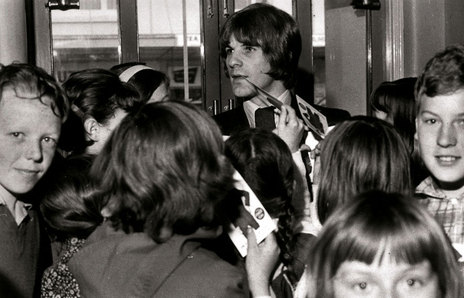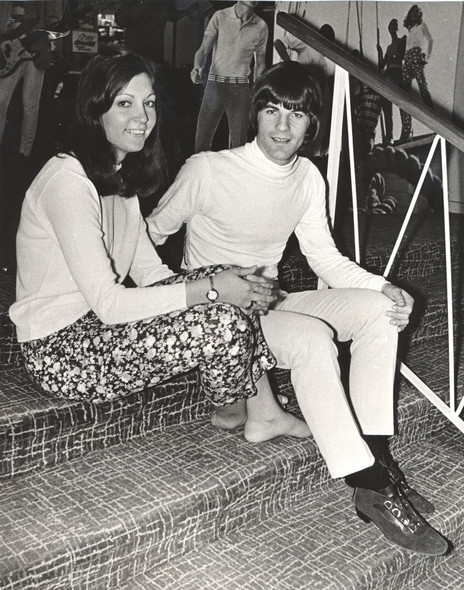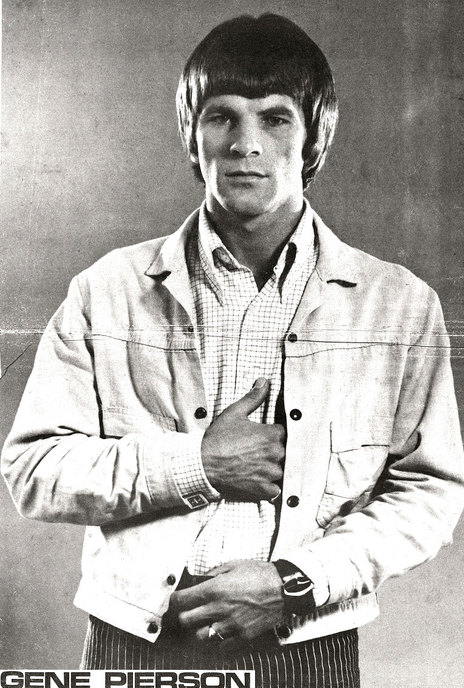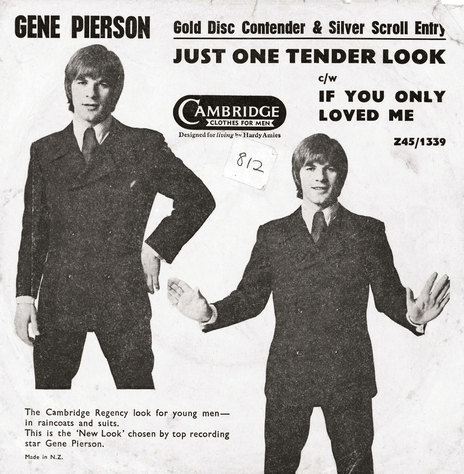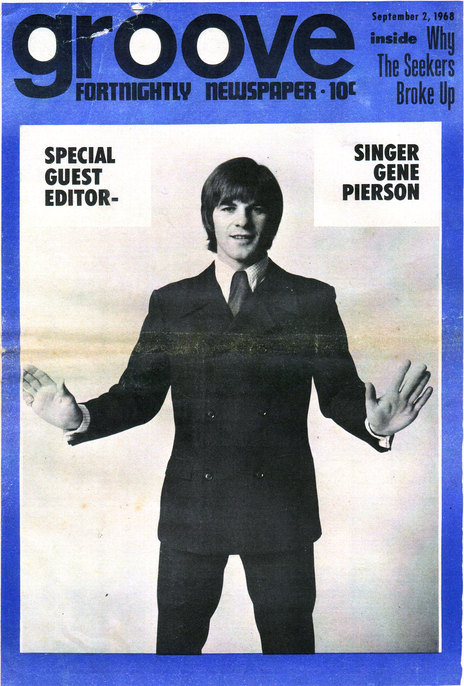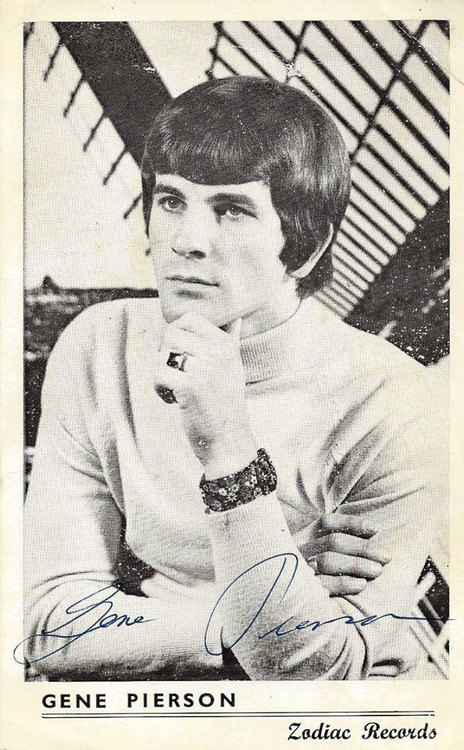After winning a talent quest in 1963, Giancarlo joined his first group The Inturns and he took the stage name Gene Chandler.
By late 1966, Gene was on the brink of Australian pop stardom. He was offered a permanent gig at Sydney's Bowl nightclub, owned by Ivan Dayman who also ran the Sunshine record label.
Gene's music and family world came crashing down in with one phone call from his mother in early 1967. Not only had his father been diagnosed with a brain tumor, but an Army conscription letter had arrived by post that instructed Gene to report to the nearest Army base – in seven days.
Pacifist Gene was shattered and didn't fancy a one-way ticket to Vietnam, nor did he want to leave his mother alone to nurse his terminally ill father.
Gene realized quickly that he had to avoid conscription at all costs. During this period, draft age males in Australia couldn’t travel abroad without an Army exemption form. The one exception to this was to New Zealand.
A suitably impressed Stebbing signed Gene to a two-year recording contract.
Twenty-four hours later Gene arrived in Auckland with $200 in his pocket and made a beeline to the Galaxie nightclub where he approached owner Eldred Stebbing and introduced himself as one of Australia’s biggest pop stars.
The Layabouts were on stage so Stebbing invited him to sing a few numbers with them.
A suitably impressed Stebbing signed Gene to a two-year recording contract. Before this happened however, one thing had to change. Stebbing pointed out that Gene Chandler was the ‘Duke of Earl’ singer. With an antique Pearson Soap print in close proximity Stebbing suggested Gene Pearson, which they changed to Pierson.
The subsequent release of the single ‘Love, Love, Love’ (originally by Bobby Hebb) brought instant success for Gene. The record received healthy airplay via a supportive Radio Hauraki in the top half of the North Island where it made the No.2 spot on the Auckland and Hawke's Bay charts.
Gene flirted with danger, and on several occasions returned home to see his parents, who were being constantly hounded by the Australian Military Police. On one such visit home his parents’ home was raided. Gene avoided arrest by passing himself off as the famous New Zealand pop singer "Gene Pierson" and just by chance he had a dossier of press clippings and records to prove the point. Gene remarked later, “Gee at one stage I thought that they were going to ask for my autograph.”
Back in Auckland it was time to start work on the next single. Claude Papesch along with various members of The Action were brought into the studio to cut the Neil Diamond song ‘You Got To Me’ as Gene’s second single, which again was a Top 10 hit in most of the charts in the regions where the pirate Radio Hauraki's signal could be received.
In early 1968 Gene narrowly missed out to Shane as the new resident singer on the C’mon television show, replacing the UK bound Mr. Lee Grant.
Although disappointed at missing out on the C'mon residency Gene didn’t dwell on it for too long. He had his new single ‘Toyland’ to promote and was part of the Blast Off 68 national tour with Larry’s Rebels, Ray Woolf, The Hi-Revving Tongues and Australia’s Johnny Farnham.
Gene returned to Australia in September 1969 to attend his father’s funeral and even though he was still a fugitive he decided to stay in Australia, safe in the knowledge that as "Gene Pierson" he could remain undetected until the political climate changed. This was a hard decision as Eldred Stebbing had already started planning an album for Gene on the back of the nationwide tours that had brought Gene to a wider audience than the top half of the North Island – a stronghold for Gene.
Gene eventually reinvented himself as a pop music reporter before becoming booking agent for the up-and-coming AC/DC.
Within a few months Gene signed to Festival Records in Australia and was soon riding high on the Australian charts with his trippy, psychedelic treatment of the Four Tops hit ‘Reach Out’. Backing was courtesy of top New Zealand band, the Sydney based The Simple Image.
Gene eventually reinvented himself as a pop music reporter for magazines, newspaper and television before becoming booking agent for the up-and-coming AC/DC then moving into a long and lucrative career as a promoter, agent and artist manager, which continues to this day.
In the 1970s Gene was involved with two record labels, Laser Records (which he had purchased) and Big Mouth Records, the latter of which would go on to distribute New Zealand bands Hello Sailor and Th’ Dudes in Australia, licensed from Eldred Stebbing with whom he maintained a business and personal relationship.
In the nineties Gene set up the record label Indigenous, specialising in Aboriginal and new age music before merging it in 2009 with a new label, Lifestyle Music Group. Styles included world music, sacred sounds, classical, poetry, ambient, jazz and health and lifestyle.
Most of the Lifestyle catalogue is available in New Zealand with several titles featuring local content.
In 2008 Gene released the CD Gene Pierson – Spinning the Moments, which encapsulated his entire musical career and came with a lavish 64-page booklet.
